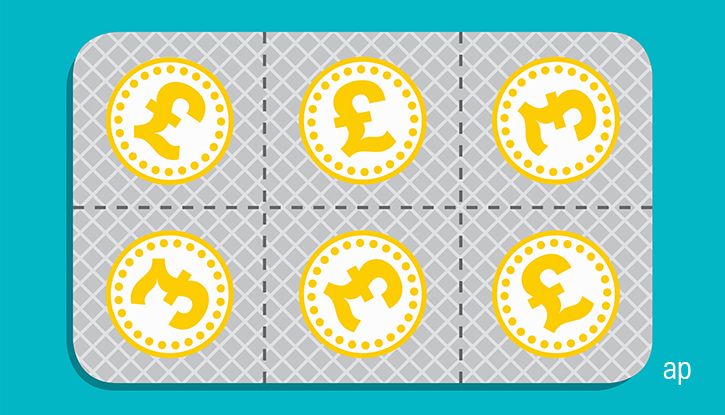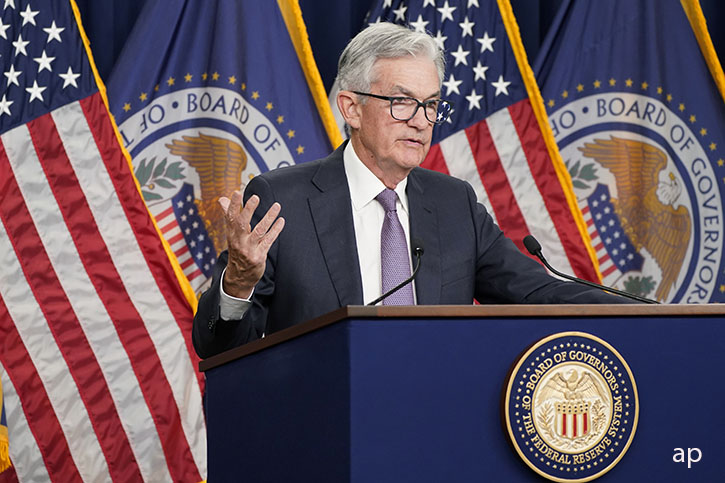
The Bank of England has continued to battle rampant inflation with another hike in interest rates in its September meeting. Bank rate has been increased by 50 basis points to 2.25%, following August’s similar increase.
The Bank’s monetary policy carried today’s increase by 5 to 4, with one member voting for a 25 basis point rise and three supporting a 75 basis point rise. Has the Bank of England been too cautious this meeting? “With the inflation forecast actually cut back slightly perhaps there is ground for the BoE’s hawkishness to drop back a touch,” says Chris Beauchamp, chief market analyst at IG Group.
Today’s decision is not accompanied, as August was, by a press conference or monetary policy report. There is no meeting in October, meaning that November 3 will see both an interest rate decision and monetary policy report. That November meeting will wrap in the latest forecasts and announcements made by the government in tomorrow’s mini budget.
Since the last meeting, the government has introduced the “Energy Price Guarantee”, a £100 billion plus intervention to rein in the huge energy prices increases seen this year. This now means the Bank is forecasting CPI to peak at just under 11% in October, rather than the 13% plus detailed in the August meeting. “In and of itself, the Government’s Energy Price Guarantee will lower and bring forward the expected peak of CPI inflation. For the duration of the Guarantee, this might be expected to reduce the risk that a long period of externally generated price inflation leads to more persistent domestic price and wage pressures, although that risk remains material.
“Nevertheless, energy bills will still go up and, combined with the indirect effects of higher energy costs, inflation is expected to remain above 10% over the following few months, before starting to fall back,” the Bank said today, insisting that inflation will return to the 2% target in the medium term.
In terms of the UK economy, the Bank noted that the labour market remains tight, but demand for labour is showing signs of weakening. The energy price changes could mean that consumer spending remains stronger than predicted in the August monetary policy report. Latest retail figures for August were weak, but this was before the government’s intervention in the energy market. The Bank estimates that consumer spending will have peaked in this quarter
Today’s statement also detailed that quantitative easing, which is more than £800 billion, will also be reduced by £80 billion over the next 12 months, the Bank confirmed today. What does this mean for markets? The Bank will begin to start selling UK government bonds, which will put downwards pressure on gilt prices and the opposite effect on yields. Remember that in the most recent years, central bank buying of government bonds has elevated prices and depressed yields – in countries like Germany, government bonds offered negative yields. In Japan, two-year government bonds are still negative and five-year bonds offer a measly yield of 0.02%. Still, inflation there is a world away from the US and UK, with August CPI just below 3%.
Latest inflation figures released last week showed a dip in August CPI to 9.9% after a fall in petrol prices. GDP and retail sales figures were also released. The pound has hit a new 37-year low against the dollar this week amid growing uncertainty over the UK economy’s prospects. Part of the equation with the currency is that the US Federal Reserve is hiking harder than the Bank of England. Last night it increased US interest rates by 75 basis points, and predicted that the federal funds rate would be above 4% this year (from its current level of 3.0-3.25%). US interest rates increases make holding dollar assets more attractive, encouraging investors to buy into the currency – the US 10-year bond yields 3.55% and the UK equivalent yields 3.35%. “I would expect both Gilt yields and Sterling to remain somewhat unloved for the foreseeable,” says Ed Hutchings, head of rates at Aviva Investors.
The Truss government is expecting to dig UK plc out of a hole with a flurry of new initiatives, including fracking, cuts to stamp duty etc. New chancellor Kwasi Kwarteng will provide more details on the government’s plans on tax and spending in Friday’s "emergency" Budget. UK chief investment strategist for the BlackRock Investment Institute says the pound come under further pressure when the news comes out: “Given the enormity of the forthcoming fiscal package - between 1.5 and 3 times the cost of furlough, based on the information currently available - the UK’s credibility will undergo a trial by markets. The UK current account deficit and widening budget gap make Sterling particularly vulnerable.”
Still, he believes the Bank may end up being less aggressive than the Fed in hiking rates: “Given we believe that the Bank of England will ultimately not follow through with all the hikes priced into markets, we have a modest preference for UK Gilts relative to other DM government bonds such as US Treasuries, of which we are underweight.”





























